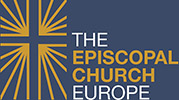The Episcopal Church is a “constituent member of the Anglican Communion, a Fellowship within the One, Holy, Catholic, and Apostolic Church, of those duly constituted Dioceses, Provinces, and regional Churches in communion with the See of Canterbury, upholding and propagating the historic Faith and Order as set forth in the Book of Common Prayer.” (Constitution and Canons, 2006)
The Episcopal Church welcomes all who worship Jesus Christ, in 109 dioceses and three regional areas in 17 nations. The Episcopal Church is a member province of the worldwide Anglican Communion.
The mission of the church, as stated in the Book of Common Prayer’s catechism (p. 855), is "to restore all people to unity with God and each other in Christ."
The 2012 General Convention established the Anglican Communion Five Marks of Mission as a framework that outlines our mission priorities.
- To proclaim the Good News of the Kingdom
- To teach, baptize and nurture new believers
- To respond to human need by loving service
- To seek to transform unjust structures of society, to challenge violence of every kind and to pursue peace and reconciliation
- To strive to safeguard the integrity of creation and sustain and renew the life of the earth
Who is the head of the Episcopal Church?
The General Convention, comprised of the House of Deputies and the House of Bishops, is the governing and legislative body of the Episcopal Church. The Presiding Bishop is the Chief Pastor and Primate of the Church. The current Presiding Bishop is the Most Rev. Michael B. Curry. He was elected Presiding Bishop at the 2015 General Convention in Salt Lake City, Utah.
What is a primate?
A primate is the chief bishop or archbishop of one of the thirty-eight churches of the Anglican Communion.
HISTORY
Where did the Episcopal Church originate?
Early English settlers established the Church of England in some of the original colonies of the United States, and in 1789, after the American Revolution, an assembly met in Philadelphia to unify all Anglicans in the United States into a single national church. A constitution was adopted along with a set of canonical laws, and the English Book of Common Prayer of 1662 was revised, principally by removing the prayer for the English monarch. Samuel Seabury was ordained in Scotland as the first American bishop. The Episcopal Church became “the first Anglican Province outside the British Isles.”
What is the legal and corporate name of The Episcopal Church?
The “Domestic and Foreign Missionary Society of the PECUSA” is the legally incorporated entity. The DFMS acts as the public, corporate arm of the church, allowing the Church to hold property and carry out missionary work in other countries or in places where it must be a registered entity. The first constitution of “The DFMS of the PECUSA” was adopted in 1821 and its legal incorporation was completed in 1846.
Is the Episcopal Church known by any other name?
Since the adoption of the United States Constitution in 1787, Episcopalians in America have called ourselves in our Constitution as “the Protestant Episcopal Church in the United States of America” (PECUSA). In the 1960’s, there was a movement (which began as early as the 1920’s) to expunge the word “Protestant.” In response, the General Convention adopted a resolution adding a Preamble to the Constitution that declared the PECUSA “otherwise known as The Episcopal Church.” It is important to note that the word “The Episcopal Church” is not a shortened version but an “alternate expression” of its official name. We are an international Church present in 16 countries and so it is appropriate to refer to its alternative name of “The Episcopal Church.”
Why was the name “Episcopal Church” chosen?
The Greek word episcopos means “bishop” or “overseer,” which is used because the Episcopal Church is governed by bishops.
